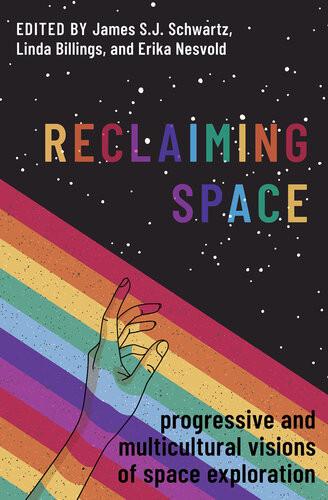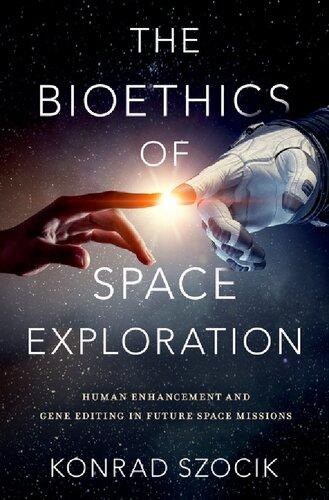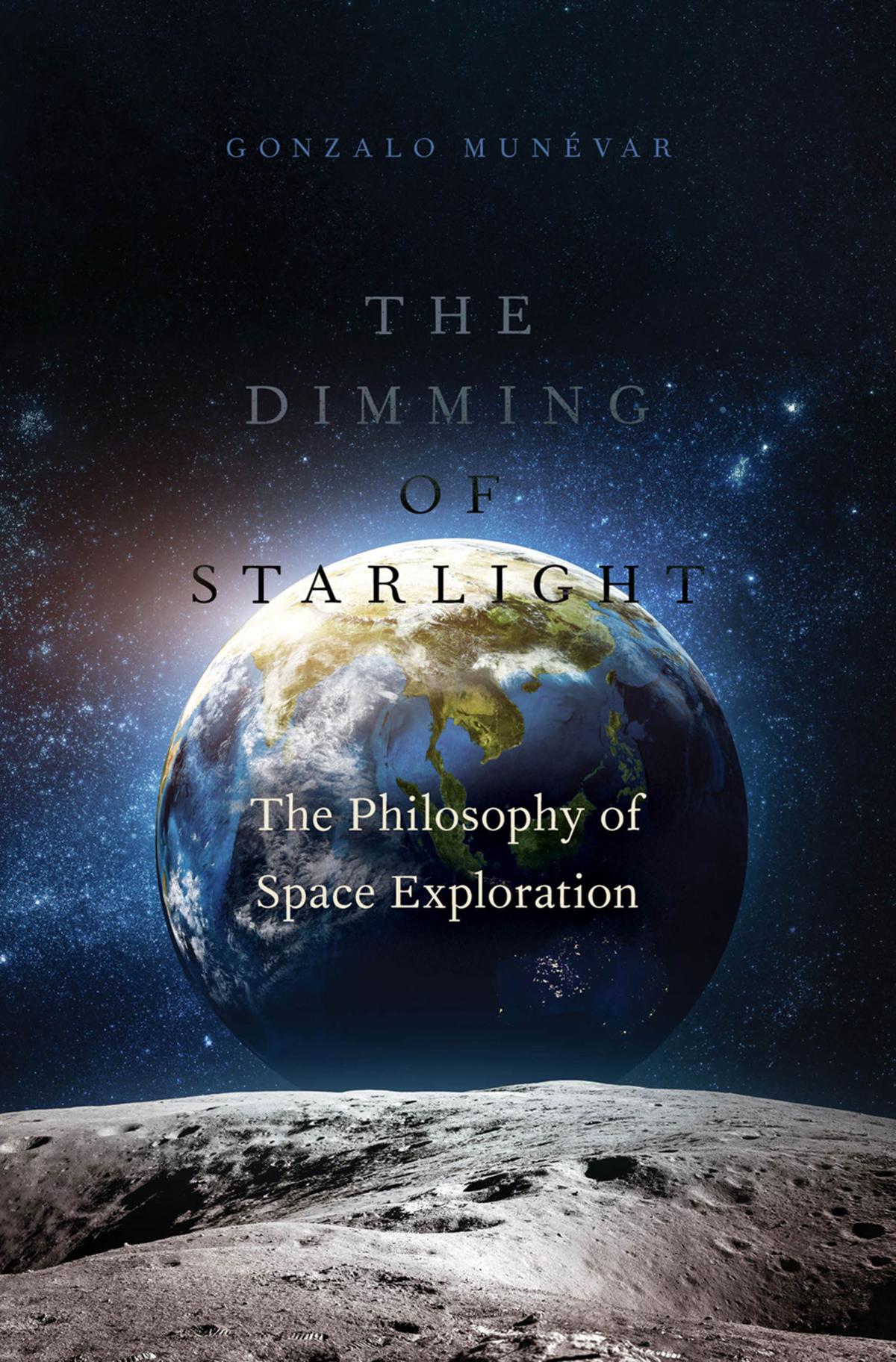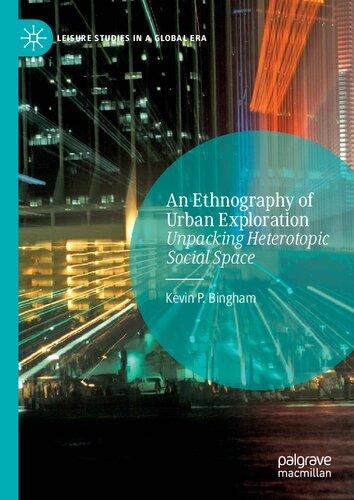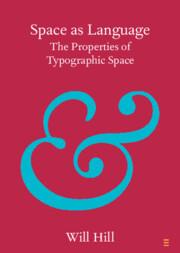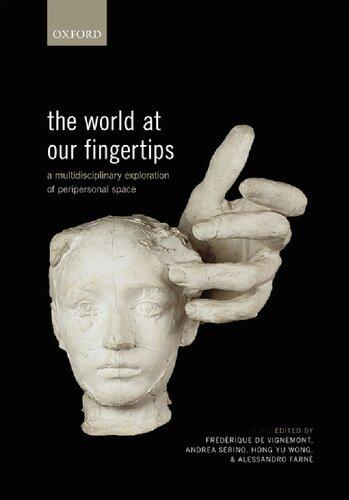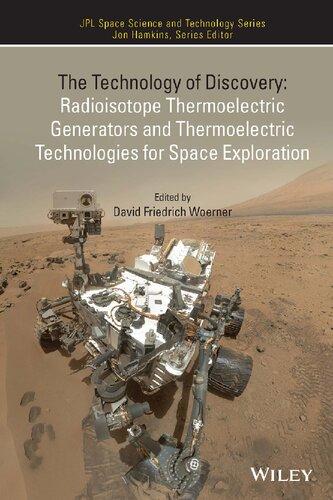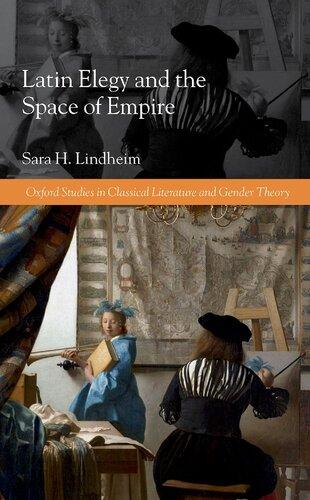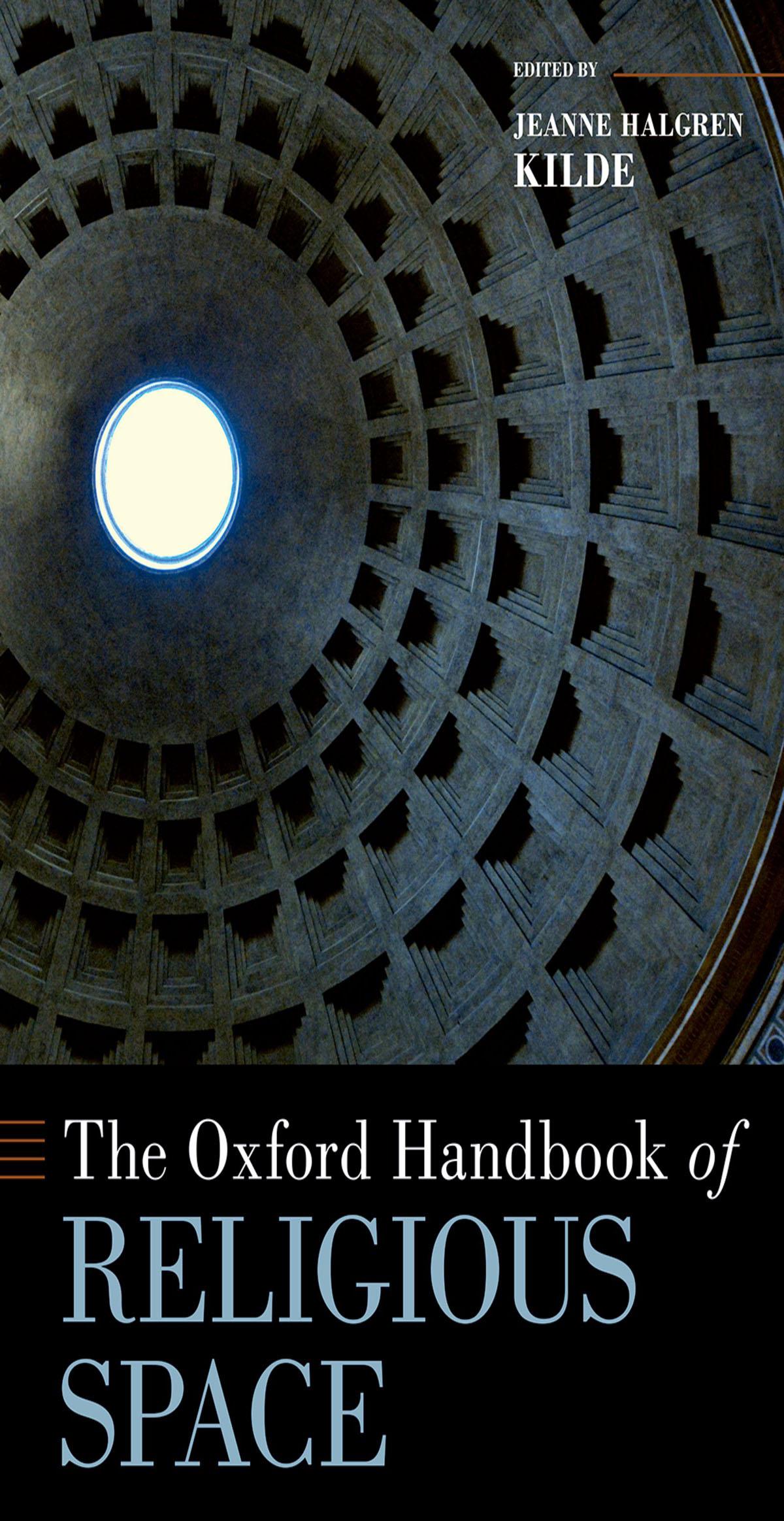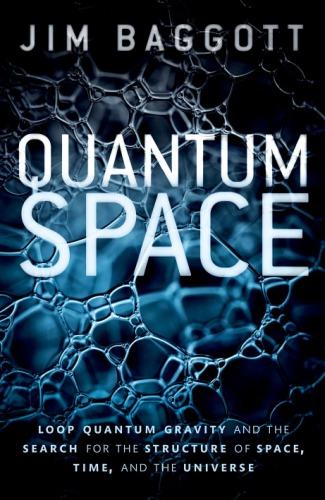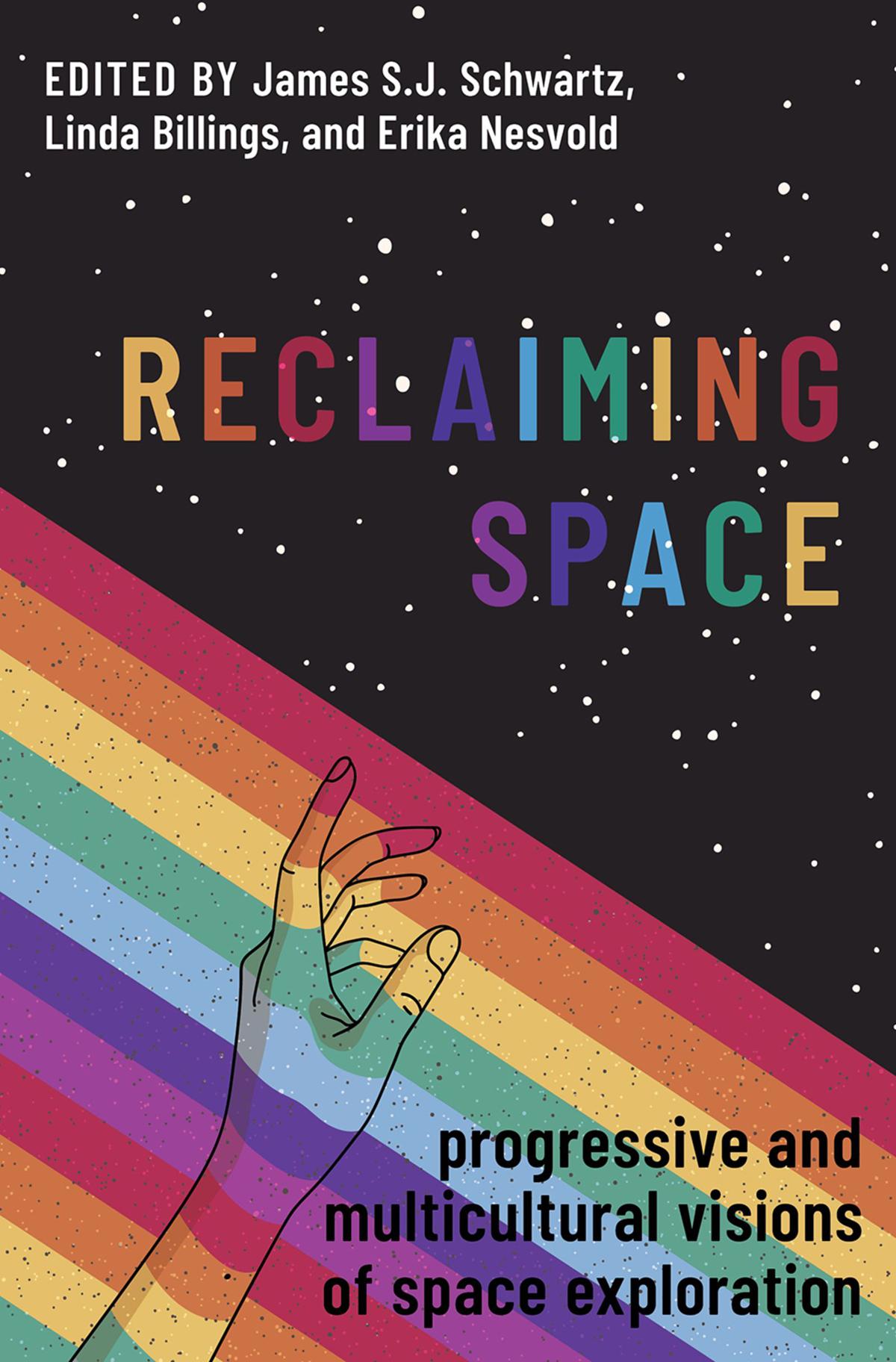Reclaiming Space
Progressive andMulticulturalVisions ofSpace
Exploration
Editedby
James S. J. Schwartz, Linda Billings, and Erika
Nesvold
Oxford University Press is a department of the University of Oxford. It furthers the University’s objective of excellence in research, scholarship, and education by publishing worldwide. Oxford is a registered trade mark of Oxford University Press in the UK and certain other countries.
Published in the United States of America by Oxford University Press 198 Madison Avenue, New York, NY 10016, United States of America.
© Oxford University Press 2023
All rights reserved. No part of this publication may be reproduced, stored in a retrieval system, or transmitted, in any form or by any means, without the prior permission in writing of Oxford University Press, or as expressly permitted by law, by license, or under terms agreed with the appropriate reproduction rights organization. Inquiries concerning reproduction outside the scope of the above should be sent to the Rights Department, Oxford University Press, at the address above.
You must not circulate this work in any other form and you must impose this same condition on any acquirer.
CIP data is on file at the Library of Congress
ISBN 978–0–19–760479–3 eISBN 978–0–19–760481–6
DOI: 10.1093/oso/9780197604793.001.0001
Forthedispossessed—ofthisplanet,andofthestars
Contents
ForewordbyLoriGarver
Preface
ListofContributors
1. An Introduction to ReclaimingSpace
JamesS.J.Schwartz,LindaBillings,andErikaNesvold
PART 1 THE EVOLUTION AND HISTORY OF SPACEFLIGHT
2. Neoliberalism: Problematic. Neoliberal Space Policy? Extremely Problematic
LindaBillings
3. Space from Āfār: From Africa Across the Indian Ocean to the Pacific
MukeshChimanBhatt
4. Cold Warrior Magic, Africana Science, and NASA Space Race Religion, Part One: Laura Nader’s Contrarian Anthropology for Afrofuturist Times
EdwardC.DavisIV
5. Global Participation in the “Space Frontier”
AlanMarshall
6. Phrenology in Space: Legacies of Scientific Racism in Classifying Extraterrestrial Intelligence
WilliamLempert
PART 2 THE ART OF ENVISIONING SPACE
7. The Language of Space
MaryRobinetteKowal
8. Spacefaring for Kinship
VandanaSingh
9. Opportunities to Pursue Liberatory, Anticolonial, and Antiracist Designs for Human Societies beyond Earth
DanielleWood,PrathimaMuniyappa,andDavidColbyReed
10. African Space Art as a New Perspective on Space Law
SaskiaVermeylenandJacqueNjeri
11. Embodiment in Space Imagery: Beyond the Dominant
Narrative
DanieladePaulisandChelseaHaramia
12. Appreciating What’s Beautiful about Space
JamesS.J.Schwartz
PART 3 CULTURAL NARRATIVES AND SPACEFLIGHT
13. Sacred Space: Decolonization through the Afrofuture
IngridLaFleur
14. Sherpas on the Moon: The Case for Including “Native Guides” in Space Exploration
DeanaWeibel
15. Indigeneity, Space Expansion, and the Three-Body Problem
TonyMilligan
16. On Loving Nonliving Stuff
DanielCapper
17. Reclaiming Space: On Hope in a Jar, a Bear in the Sky, and the Running Red Queen
KathrynDenning
PART 4 BEING ACCOUNTABLE IN THE PRESENT
18. Contact Zones and Outer Space Environments: A Feminist Archaeological Analysis of Space Habitats
AliceGorman
19. Occupy Space: Will Disabled People Fly?
SheriWells-Jensen
20. Protecting Labor Rights in Space
ErikaNesvold
21. Reclaiming Lunar Resources: Paving the Way for an International Property Rights Regime for Outer Space
RuvimboSamanga
22. Starlink or Stargazing: Will Commerce Outshine Science?
TanjaMasson-Zwaan
23. Creating a Culture of Extraterrestrial Environmental Concern
WilliamR.Kramer
PART 5 VISIONS OF THE FURTHER FUTURE
24. Desire, Duty, and Discrimination: Is There an Ethical Way to Select Humans for Noah’s Ark?
EvieKendal
25. Deconstructing and Reprivileging the Education System for Space
JanetdeVigne
26. Astrobioethics Considerations Regarding Space Exploration
OctavioChon-Torres
27. Greening the Universe: The Case for Ecocentric Space Expansion
AndreaOwe
28. Will Posthumans Dream of Humans? A Message to Our Dear Postplanetary Descendants
FrancescaFerrando
Index
Foreword
LoriGarver
Humanity’s first steps beyond Earth’s atmosphere were to essentially advance military objectives. The National Aeronautics and Space Administration (NASA) was established in 1958 for expressed peaceful purposes but was in reality an instrument of the Cold War. The premise put forward in my memoir, Escaping Gravity, is that while this linkage increased NASA’s budget immensely, it also drove the fledgling space agency’s culture toward episodic large engineering projects and away from investments in scientific research and technical innovation that could have returned more broad societal benefits. In turn, this focus attracted a workforce most interested in conducting daring exploits for a few White men, and the massive scale of such endeavors could only be conducted by the world’s two superpowers of the time, the United States and the Soviet Union.
Remembrances of Apollo focus on the bold, daring dreams of a young President and romanticize the era and purpose of the mission. “We choose to go to the Moon in this decade and do the other things, not because they are easy, but because they are hard” is a justification still repeated in an attempt to increase NASA’s funding today. Rarely acknowledged are the recordings of Kennedy telling NASA Administrator James Webb in November 1962 that if we can’t beat the Russians, “we ought to be clear, otherwise we shouldn’t be spending this amount of money, because I’m not that interested in space.” The historic record is clear, but still this narrative prevails, reinforced by historians and institutions committed to perpetuating the legend. Mythology sells.
Nostalgia for the early “manned” space program depicts it as a period that was thrilling and wonderful for everyone. In reality, that
was primarily the case for Anglo-Saxon Caucasian men in the United States. NASA’s overwhelming early success narrowed its field of vision and prevented the US space program from being oriented towards more fundamental and inclusive goals. By putting these past achievements on a pedestal, we limited our future. The massive institutional bureaucracy and industry interests developed for Apollo required exorbitant fixed costs just to be maintained, and once in place, legacy interests were naturally conditioned to seek similar missions and goals that could use the same infrastructure and workforce.
The space community has been frustrated by a lack of US government investment in space exploration but hasn’t wanted to accept the fundamental source of the problem. Too many stakeholders are invested and incentivized to protect the current way of doing business. Apollo’s mandate was unique, but because of its success, it set a culture ill-suited to carry the hopes and dreams of the global citizenry.
Space endeavors can contribute to the greater good by connecting the world and reaching beyond, but fundamentally, we still have a system that creates programs to suit its own needs—doing the things the people who already work there want to do—instead of creating programs that address the public’s needs. Public polls on space issues consistently rank studying Earth Science and detecting asteroids as the top two priorities for space exploration, while sending a few humans to walk on the Moon and Mars rank at the bottom of the list. Aligning space exploration programs to address today’s challenges would expand interest and talent beyond its existing narrow constituency and encourage a more diverse workforce. An important justification for human spaceflight is its ability to inspire. Instead of trying to refuel a Cold War hysteria, we should be designing missions to inspire those we have yet to reach. In reality, there are as many motivations to advance space development as there are people on the planet. That is the point. Instead of benefiting a few, space should be fully utilized to benefit humanity and society. Future space activities can help us not only to thrive, but also to survive.
Space is a transformative location with unique characteristics—like Earth’s own atmosphere and oceans. Earlier societal expansions that exploited the oceans and the atmosphere grew to support vastly different uses, including transportation, communications, scientific research, recreation, and warfare. Early explorers who learned to operate in these otherwise hostile, alien environments, carried their own cultural bias, and foreign—sometimes deadly—biology.
Society’s expansion and exploitation of space are evolving to support similarly diverse uses. Early successes in human spaceflight enhanced prestige and reinforced the intent for global space dominance by competing spacefaring nations. Advancing technologies and reducing barriers to entry for space exploration now require us to evaluate and adjust our intentions. As capabilities and industries mature, government regulations related to public safety, environmental stewardship, and shared resources must also evolve.
Exploring space has allowed us to begin to understand the mysteries of the universe, including how life began and whether it exists elsewhere in any form. Space missions have opened our eyes to what lies beyond our atmosphere, as well as on the Earth below. Operating in space provides us instantaneous global delivery of voice, data, and video information; precision measurement of time and location; and Earth observations that measure the interactions between the atmosphere, land, ice, and oceans that affect us all.
We’ve learned that recent human activities are changing our home planet in ways that aren’t easy to see from our own backyards. To understand what is happening here, we need to see ourselves from a new perspective, one that shows how we are connected—7.7 billion people and 8.7 million species—to the only living planet in our own galaxy or in the known universe. It is only from this perspective that we can fully understand what can be done to allow planet Earth to remain a vital home to future generations.
The Industrial Age fueled population expansion across the globe and our first steps beyond. In the Digital Age, we now gather and instantaneously access massive amounts of data from space that inform Earth systems models, revealing how unprecedented
amounts of greenhouse gases being released into our atmosphere are causing a climate crisis that threatens our existence.
Temperatures in the atmosphere, land, and oceans are increasing; glaciers are melting, and seas are rising. These changes are fueling extreme weather events, catastrophic storms, flooding, and drought that affect every aspect of our environment—air quality, water availability, food supply, biodiversity, and disease. All of life as we know it is under stress. Data shows that over the next few decades —a blink of an eye in Earth’s story—the damage we have caused will accelerate uncontrollably, making it even more difficult, if not impossible, for us to reverse. We are facing the tipping point for human life on our home planet. What we do now will determine the rest of our story.
Thanks to advancements in space development, we live in a moment in history when scientific and technological progress allows us to understand the negative impacts of previous inventions, offering us a rare and fleeting opportunity to recover. Armed with the knowledge of what is happening and why, our new perspective offers solutions. Improved sensor technologies, data accessibility and distribution can provide critical, timely information to more precisely measure, model, predict, and adapt to the climate crisis, limiting human suffering.
Sixty-three years ago, NASA was challenged to reach farther and, in successfully achieving this goal, provided a new perspective of ourselves and our beautiful, fragile home planet. Apollo 8 astronaut Bill Anders, who took the Earthrise photo capturing the Earth as it rose behind the Moon, said, “We came all this way to explore the Moon, and the most important thing is that we discovered the Earth.”
President Kennedy’s speech that set the stage for Apollo explained the challenge poetically: “We set sail on this new sea because there is new knowledge to be gained, and new rights to be won, and they must be won and used for the progress of all people.”
Space activities can make meaningful contributions to sustaining humanity on the Earth and eventually beyond. Our combined investments have led to advancements that now allow us to tap the
collective genius of humanity to find solutions to the previously insurmountable problems we face today. Future space voyages can lift all people by more fully utilizing atmospheric and space-based science and technology to address society’s challenges.
We now have the knowledge, understanding, and capability to chart a course that utilizes the realm of space sustainably for the benefit of us all. Expanding our presence beyond our own planet shouldn’t be designed to escape or give up. It should be part of a larger strategy to assure all our survival.
Reclaiming Space: Progressive and Multicultural Perspectives on Space Exploration offers new and valuable insights for more equitable and sustainable space exploration initiatives. Linda, Jim, and Erika have curated an impressive range of diverse topics and perspectives for this volume that have rarely been considered. It is my hope that Reclaiming Space will begin a global conversation about the future of space for humanity.
The most important lesson we learned from our first forays beyond our thin atmosphere was that we are in this together. We overcame gravity by working collectively toward an aligned goal. That same force must now allow us to overcome political and policy differences that are driven by circumstances such as what we look like, where we live, and who we love. Keeping our shared goals in mind can give us the ability to explore space for the benefit of all.
Preface
The idea for this volume was first conceived in the autumn of 2016, at the inaugural meeting of the Society for Social and Conceptual Issues in Astrobiology (SSoCIA). It was there that two of us (Linda Billings and James Schwartz) wondered aloud to one another about putting together an edited volume dedicated to progressive, radical, and “counter-culture” perspectives on space exploration and the culture of spaceflight. Perhaps, we thought, we could assemble a spiritual successor to Stewart Brand’s 1977 edited collection Space Colonies (A Coevolution Book), which platformed a variety of environmentalist critiques (and defenses) of space exploration during the public commotion surrounding Princeton physicist Gerard O’Neill’s advocacy for orbital habitats in the 1970s.
Beginning in the 2010s, however, it was no longer O’Neill’s “high frontier” that was captivating spaceflight culture. Instead, it was Richard Branson’s and Virgin Galactic’s efforts to grow the space tourism industry. It was Jeff Bezos’s and Blue Origin’s plans to create space-based industrial workforces. It was Elon Musk’s and SpaceX’s mission to make humanity a “multiplanetary” species. In other words, we are heirs to a spaceflight culture, ensconced as the “NewSpace” movement, that by all appearances is dedicated to promoting the interests of the most wealthy and powerful Earthlings.
This volume is a testament to the critical mass that has been reached in response to the NewSpace movement. In 2020, when Schwartz at last followed up with Billings about the idea for Reclaiming Space, the volume came together remarkably— breathtakingly—quickly. Erika Nesvold joined as coeditor within a few short weeks. After a month, we had a dozen confirmed contributors as well as proposals under consideration at several publishers. After only another two or three months our contributor list had grown to
nearly thirty authors, and we had secured a publication contract for the volume. Throughout this process, as editors, we have been overwhelmed by the enthusiasm of our contributors. We are honored to have constructed a platform from which so many individuals from so many different backgrounds have chosen to speak, and we are deeply grateful for their diligent and artful contributions, each written under the many stressors inherent to life during a deadly global pandemic. While our contributors are not individuals who are opposed to space exploration, they all have concerns about how it is proceeding, and they have many good ideas about how we can aim for a better future, in space and on Earth.
We recognize at the same time that this book is long overdue, in the sense that too few attempts have been made to invite culturally nondominant perspectives into the space exploration conversation (an error to which we editors, as privileged members of the dominant culture, are not immune). We also recognize that this book is inadequate, in the sense that no book, nor any proliferation of books, could ever be sufficient for effecting positive changes on this world and in the space and satellites that surround it, where changes are badly needed.
Reclaiming Space: Progressive and Multicultural Visions of Space Exploration is for a wide audience. Our aim has been to curate a volume that is accessible to general space-interested readers, but that also remains novel, meaningful, and informative to space exploration researchers, employees of national spaceflight programs, and members of the space industry. Its essays should be no more difficult to read than something you might be asked to read in a first-year humanities or social science course at university. We hope it inspires younger minds just as much as it challenges the assumptions of experienced experts.
A review of the biographies of our contributors will show a great variety of home countries, backgrounds, expertise, and lived experiences. While many of our contributors are academics who work and teach at universities, some teach at other kinds of institutions, some are artists, some are dancers, some are actors, and some are award-winning authors of science and speculative
fiction. At the same time, all of our contributors are curious and passionate about space. And all are eager to help us figure out how to explore space in ways that substantially benefit all of humanity, as opposed to benefiting only a privileged few.
Our academic contributors hail from disciplines as varied as anthropology, astrobiology, astronomy, astrophysics, communication science, law, linguistics, philosophy, and physics. This multidisciplinarity appears even among the editors, as one (Nesvold) earned her doctorate in astrophysics, another (Billings) earned her doctorate in mass communication, and yet another (Schwartz) earned their doctorate in philosophy. Let this highlight that there are many ways to contribute to conversations about space exploration and space policy—these are not domains that are reserved exclusively for the STEM (Science, Technology, Engineering, Mathematics) disciplines. If indeed, as is commonly assumed in spaceflight culture, we are obliged to extend human society into space, it is not clear how we will do that without the help of all of the disciplines, vocations, and artistries (as well as hobbies and pastimes) that we require to maintain societies here on Earth. It might be difficult to justify ruling anyone outof the conversation.
Certainly, there are many more voices and perspectives that deserve a hearing than can fit in an edited volume of modest length. Although we did not seek to exclude any families of perspectives from this volume, the result is neither fully nor perfectly inclusive. There are many other perspectives that we ought to appreciate and understand. Tentatively, we hope to assemble sequels to this volume in order to platform a greater variety of voices and perspectives. We also would like to encourage others to pursue related ideas for anthologies and special issues, meetings and informal gatherings, and conferences and symposia, for there is so much important work to be done! That said, we would be remiss if we did not point the reader to other anthologies which have helped to inspire and pave the way for the book you are reading right now, including (but not limited to): Isaiah Lavender III’s Black and Brown Planets: The Politics of Race in Science Fiction (University Press of Mississippi, 2014); Grace Dillon’s Walking the Clouds: An Anthology of
Indigenous Science Fiction (University of Arizona Press, 2012); Ed Finn and Joey Eschrich’s Visions, Ventures, Escape Velocities: A CollectionofSpaceFutures(Center for Science and the Imagination, Arizona State University, 2017); and Eugene Hargrove’s Beyond SpaceshipEarth:EnvironmentalEthicsandtheSolarSystem (Sierra Club Books, 1986).
We have many individuals to thank for helping bring this volume into existence. First and foremost, we are beyond grateful to each of our contributors, who have filled this volume with compelling and insightful ideas about space exploration. We encourage readers to learn more about their unique and fascinating novels, art projects, research, and other work. Should you peruse the contributor biography section of this book, no doubt you will discover more than one topic that intrigues you! We also thank Jeremy Lewis, Bronwyn Geyer, Michelle Kelley, and Oxford University Press for their warm support and encouragement throughout the process of editing this book. Lastly, we thank Tony Milligan for insightful conversations very early in the editing process.
Jim thanks everyone who has helped them to shape their values for the better, as well as those who played important behind-thescenes roles in bringing this volume to life. In no particular order, I thank: Cindy Johnson, Zach Pirtle, Susan Sterrett, Susan Castro, Jeff Smith, Mukesh Chiman Bhatt, Sheri Wells-Jensen, Jonathan Trerise, Daniel Capper, Daniela de Paulis, Margaret Race, Lucas Mix, Ted Peters, Keith Abney, Wendy Whitman Cobb, Chelsea Haramia, William R. Kramer, Deana Weibel, John Traphagan, Kelly Smith, Lucianne Walkowicz, Chyla Pugh, Ashley Bergman, Katie Klein, Rebecca Nicole, Jessica Garner, Deb Michling, Rebecca TeichMcGoldrick, Kate Nance, Glenn Baughman, Jay Price, Kathryn Denning, Steve Dick, Roger Launius, Chinyere Okafor, Neal Allen, A. J. Link, Brian Green, Tony Milligan, Charles Cockell, Gonzalo Munévar, David Hewitt, Les Johnson, Marcus Cooper, Susan Vineberg, Matt McKeon, Debra Nails, Jamie Lindemann Nelson, John Corvino, Ben Ragan, Zach Weinersmith, Steve Baxter, Ben KitleyHassenger, Corey Kitley-Hassenger, Maüz, Jonathan Natale, Alexandria Mason, David Cheely, Jennifer Blount Goosen, Travis Figg,
Tom, Josh, and the fabulous community at J’s Lounge, Sarah Lundin, Crystal Chitwood, Greg Grillot, Ginnie Johnson, Kristin Platt, Conrad Johnson, Marna Cole, Sean Johnson, Addie Carter, Indigo Challender, Ila Phelps, Em White, Hannah Erickson, Lee Jones, Sam Anderson, Samara Bergman Murphy, and my students. Also, my deepest gratitude to Erika and Linda, for being phenomenal coeditors!
Linda thanks: My NASA funders—Mary Voytek, head of the NASA Astrobiology Program; Lindley Johnson and Kelly Fast with NASA’s Planetary Defense Program. Roger Launius and Steve Dick, former NASA chief historians, who gave me opportunities to research, write about, and publish critiques of the dominant ideology of space exploration.
Erika thanks: Linda and Jim, for inviting me to this project and making it a delightful experience; my invaluable JustSpace cofounder, Lucianne Walkowicz; all of the scholars and activists who have shared their time and expertise to improve me understanding of these issues, particularly Margaret Newell of The Ohio State University and Sarah Newell of the International Labor Rights Forum; and all of the tireless (and tired) activists working to show us visions of a better future on Earth, without which we cannot hope to imagine a better future in space.
With apologies to those we have forgotten to acknowledge, Jim, Linda, and Erika
Contributors
Mukesh Chiman Bhatt is a Kenyan polymath physicist, linguist, and space lawyer of Indian descent living in the United Kingdom. He has previously worked and published on defense and aerospace materials and currently researches and writes on space law (and law in space) with respect to evolution and human agency in the settlement of outer space. This also intersects with his interests in migration, cultures, and philosophies from around the world. Currently (2021) he is affiliated to Birkbeck, University of London in the United Kingdom, and his work may be found on LinkedIn, Academia.edu, and Researchgate along with the usual books and journals.
Linda Billings is a consultant to NASA’s astrobiology and planetary defense programs in the Planetary Science Division of the Science Mission Directorate at NASA Headquarters in Washington, DC. She also is director of communications with the Center for Integrative STEM Education at the National Institute of Aerospace in Hampton, Virginia. She earned her PhD in mass communication from Indiana University. She worked for more than thirty years in Washington, DC, as a researcher; communication planner, manager, and analyst; policy analyst; and journalist. She served as a member of the staff for the National Commission on Space (1985–1986), and an officer of Women in Aerospace (WIA) for fifteen years. She was elected a Fellow of the American Association for the Advancement of Science in 2009. She blogs about space matters at doctorlinda.wordpress.com.
Daniel Capper is a Professor in the School of Humanities at the University of Southern Mississippi, where he teaches Asian religions, comparative religions, and research methods. Trained in the field of religion and science dialogue at the University of Virginia and the
University of Chicago, his interdisciplinary studies explore environmental ethical interactions with the nonhuman natural world, especially among American Buddhists. Capper’s many publications include the books Guru Devotion and the American Buddhist Experience, Learning Love from a Tiger: ReligiousExperiences with Nature, and Roaming Free like a Deer: Buddhism and the Natural World. Currently his research probes the interfaces between Buddhism, environmental ethics, and extraterrestrial ecological issues such as the disposition of space junk or the imminent mining of our moon. Please visit his research website at www.spaceenvironments.org.
Octavio Chon-Torres holds a PhD in Philosophy and is a doctoral candidate in Education at the Universidad Nacional Mayor de San Marcos, Peru. He also holds a master’s degree in Epistemology from the same university. He is currently a Professor at the Universidad de Lima, Peru, associate member of the International Astronomical Union in the commission F3 for Astrobiology, and member of the Working Group on Astrobioethics. He is the President and founder of the Peruvian Association of Astrobiology. His publications focus on the philosophy of astrobiology, astrobioethics, and transdisciplinarity. In addition, he is the Director of the Stratosphere Project, a transdisciplinary research initiative in astrobiology. He is also an amateur radio operator (OA4-DWK).
Edward C. Davis IV has conducted anthropological research in Africa, Latin America, Europe, Asia, and North America. As an historical linguistic anthropologist, Davis earned his BA at the Gallatin School at New York University; both MA and PhD degrees in African American studies at the University of California, Berkeley; and an MPhil in Anthropology at University of Cambridge as a Gates Scholar and member of St. John’s College. Dr. Davis honors his Underground Railroad roots along Illinois’ Trail of Tears Highway as a volunteer with the Angola Partnership Team. As a mission within the Illinois conference of the United Church of Christ, APT rebuilds postwar medical, educational, and agricultural infrastructure at the request of the Igreja EvangelicaCongregacionalemAngola. Davis remains the
only descendant of 1619 Virginia working in his African ancestral homeland, which inspired the name for his company UloñoGPS, Inc. from the Ovimbundu word for intergenerational knowledge. For eight years, Davis directed Africana studies and Anthropology as a tenured professor at a college named for Malcolm X. Today, Davis teaches at Southland College Prep High School in Richton Park, Illinois.
Kathryn Denning is a Canadian anthropologist and archaeologist at York University, Toronto. She specializes in the long view of humanity’s history, and our ethical engagements with life that is extinct, extant, and as-yet-unknown. She researches humanity’s cultural expansion into space, how we imagine our future beyond Earth, and how we anticipate other life not yet discovered. Kathryn was on Crew #78 at the Mars Desert Research Station, has collaborated with scientists of the NASA Astrobiology Institute, guest lectures at International Space University, and is on the Science Advisory Board of the SETI Institute and the Board of the Just Space Alliance. She is passionate about fair and accurate space education for all, and regularly speaks with writers, documentary-makers, and at public events.
Francesca Ferrando (pronouns: they/them) teaches Philosophy at NYU-Liberal Studies, New York University. A leading voice in the field of Posthuman Studies and founder of the Global Posthuman Network, they have been the recipient of numerous honors and recognitions, including the Sainati prize with the Acknowledgement of the President of Italy. They have published extensively on these topics; their latest book is PhilosophicalPosthumanism(Bloomsbury, 2019). In the history of TED talks, they were the first speaker to give a talk on the topic of the posthuman. US magazine Origins named them among the 100 people making change in the world (www.theposthuman.org).
Lori Garver is the Founder and CEO of Earthrise Alliance, a philanthropy that creates meaningful earth science content from satellite data to address climate change. She serves as an Executive in Residence at Bessemer Venture Partners, and is a nonresident
Senior Fellow at the Belfer Center for Science and International Affairs at Harvard’s Kennedy School. Garver served as Deputy Administrator of the National Aeronautics and Space Administration (NASA) from 2009–2013 and led the agency’s transition team for President-Elect Obama. Previous senior positions have included General Manager of the Air Line Pilots Association, Vice President at the Avascent Group, and Associate Administrator for Policy and Plans at NASA. Lori is a cofounder of the Brooke Owens Fellowship, an internship and mentorship program for collegiate women and gender minorities pursuing degrees in aerospace fields. Her memoir, Escaping Gravity, was published in the summer of 2022. Garver is the recipient of numerous honors and awards including the 2020 Lifetime Achievement Award from Women in Aerospace, three NASA Distinguished Service Medals and an Honorary Doctorate from Colorado College. She holds a BA in Political Economy from Colorado College and an MA in Science, Technology and Public Policy from the George Washington University.
Alice Gorman is an internationally recognized leader in the field of space archaeology and author of the award-winning book DrSpace Junk vs the Universe: Archaeology and the Future (MIT Press, 2019). Her research focuses on the archaeology and heritage of space exploration, including space junk, planetary landing sites, offearth mining, and space habitats. She is an Associate Professor at Flinders University in Adelaide and a heritage consultant with over twenty-five years’ experience working with Indigenous communities in Australia. Gorman is also a Vice-Chair of the Global Expert Group on Sustainable Lunar Activities and a member of the Advisory Council of the Space Industry Association of Australia. In 2021, asteroid 551014 Gorman was named after her in recognition of her work in establishing space archaeology as a field.
Chelsea Haramia is an Associate Professor of Philosophy at Spring Hill College. Her current research focuses on astrobiology ethics, the ethics of science and technology, the ethics of space exploration, and feminist philosophy. She is especially active in debates concerning the Search for ExtraTerrestrial Intelligence (SETI) and
the activity of Messaging ExtraTerrestrial Intelligence (METI). She has recently published multiple journal articles on the morality of messaging extraterrestrial intelligence, and she has a chapter forthcoming in the Routledge Handbook of Social Studies of Outer Space outlining the philosophical and ethical dimensions of current METI and SETI projects. She is also coeditor of the open-access journal 1000-Word Philosophy, which houses a growing set of original, philosophical essays aimed at experts and nonexperts alike.
Evie Kendal is a bioethicist and public health researcher at the Department of Health Sciences and Biostatistics, Swinburne University of Technology. Evie completed her Bachelor of Biomedical Science in 2008, specializing in human pathology and behavioral neuroscience, before completing a Bachelor of Arts in Comparative Literature and Cultural Studies, Classical Studies (Latin) and Philosophy, with First Class Honors in English Literature. She completed her Master of Bioethics in 2012 and her PhD in Bioethics from Monash University in 2018. Evie also completed a Master of Public Health and Tropical Medicine at James Cook University in 2017, specializing in reproductive and environmental health. Evie’s research interests include ethical dilemmas in emerging biotechnologies, space ethics, and public health ethics.
Mary Robinette Kowal is the author of the Lady Astronaut Universe and historical fantasy novels: The Glamourist Histories series and Ghost Talkers. She’s a member of the award-winning podcast WritingExcuses and has received the Astounding Award for Best New Writer, four Hugo awards, the RT Reviews award for Best Fantasy Novel, the Nebula, and Locus awards. Stories have appeared in Strange Horizons, Asimov’s, several Year’s Best anthologies and her collections Word Puppets and Scenting the Dark and Other Stories. Her novel CalculatingStars is one of only eighteen novels to win the Hugo, Nebula and Locus awards in a single year. As a professional puppeteer and voice actor (SAG/AFTRA), Mary Robinette has performed for LazyTown (CBS), the Center for Puppetry Arts, Jim Henson Pictures, and founded Other Hand Productions. Her designs have garnered two UNIMA-USA Citations of
Excellence, the highest award an American puppeteer can achieve. She records fiction for authors such as Seanan McGuire, Cory Doctorow, and John Scalzi. Mary Robinette lives in Nashville with her husband Rob and over a dozen manual typewriters.
William R. Kramer has degrees in biology, environmental policy, public administration, and political science (University of Hawaii). His doctoral dissertation, “Bioethical considerations and property rights issues associated with the discovery of extraterrestrial biological entities—Implications for political policy in the context of futures studies,” grew from his experiences as a wildlife biologist with the US Fish and Wildlife Service, where he was head of the Endangered Species Recovery Program. He was a consultant to the US Navy for over a decade on environmental issues, taught bioethics and biology at Hawaii Pacific University, worked at HDR, Inc. as their extraterrestrial environmental analyst, and now lectures on futures studies, bioethics, and environmental ethics at the International Space University. William lives in Frederick, Maryland, and can be reached through his website: OuterSpaceConsulting.com.
Ingrid LaFleur is a curator, artist, Afrofuture theorist, pleasure activist, and founder of The Afrofuture Strategies Institute (TASI). As a former candidate for the mayor of Detroit, LaFleur has made it her mission to ensure equal distribution of the future. She explores the frontiers of social justice through emerging technologies and science, and new economies and modes of government. Through TASI, LaFleur implements Afrofuture foresight and approaches to empower Black bodies and oppressed communities. As a thought leader, social justice technologist, public speaker, teacher, and cultural advisor she has led conversations and workshops at Centre Pompidou (Paris), TEDxBrooklyn, TEDxDetroit, Ideas City, New Museum (New York), Harvard University, Oxford University, and Museum of Modern Art (New York), among others. Her work has been featured in the NewYorkTimes, NPR’s ThisAmericanLife, and Hyperallergicto name a few.
William Lempert is an Assistant Professor of Anthropology at Bowdoin College in Brunswick, Maine. Drawing on years of ethnographic fieldwork with Indigenous media organizations in the Kimberley region of Northwestern Australia, his research engages the dynamic process of filmmaking as a critical mode of political transformation. This work informs his current writing on ways in which Indigenous futurisms reimagine the proliferation of virtual reality and outer space colonization.
Alan Marshall is a specialist in both the global history of technology and also the long-term future global impact of technology, receiving his doctorate in these topics from the University of Wollongong (Wollongong, Australia) in 1999. Since 2011, Alan has been a full-time Visiting Professor in Thailand’s largest tertiary institution, Mahidol University. Before that, Alan held numerous research fellowships across the world, from the Institute of Advanced Studies in Science, Technology and Society in Graz, Austria to the Curtin University of Technology in Perth, Australia. His published books include Ecotopia2121:AVisionofOurFutureGreen Utopia, Dangerous Dawn: Our New NuclearAge, and WildDesign: TheEcomimicryProject.
Tanja Masson-Zwaan is an Assistant Professor and Deputy Director of the International Institute of Air and Space Law at Leiden University, and President Emerita of the International Institute of Space Law. She advises the Dutch Government on space law issues and was cofounder of the Hague International Space Resources Governance Working Group. She publishes on diverse space law topics and coauthored IntroductiontoSpaceLaw (2019). She is full Faculty at International Space University. Tanja is closely associated with associations and organizations worldwide, including the International Academy of Astronautics, International Law Association, Académie de l’Air et de l’Espace, Open Lunar Foundation, ASU Interplanetary Initiative, Netherlands Space Society, and Secure World Foundation. She received several awards including a Royal decoration for her work in space law.
Tony Milligan is a Senior Researcher in the Philosophy of Ethics with the Cosmological Visionaries project, based out of the Department of Theology and Religious Studies at King’s College London. Publications include The Ethics of Political Dissent (2022); Pravda v době populismu/Truth in a Time of Populism (2019); the coedited white paper on AstrobiologyandSociety inEurope (2018); the coedited volume The Ethics of Space Exploration (2016); The Next Democracy? (London: Roman and Littlefield, 2016); Animal Ethics: the Basics, (2015); Nobody Owns the Moon: The Ethics of SpaceExploitation(2015); the coedited volume LoveanditsObjects (2014); CivilDisobedience:Protest,JustificationandtheLaw(2013); Love (2011); and Beyond Animal Rights: Food, Pets and Ethics (2010).
Prathima Muniyappa is a designer, conservator, and a research assistant for the Space Enabled research group. She is a master’s student in the Media Arts and Sciences at the Media Lab. She is interested in addressing issues of social justice, democratic access for historically marginalized communities, and enabling Indigenous agency. Her research investigates alternative cosmologies and cultural ontologies for their potential to contribute to emerging discourse on technoimaginaries in the realm of space exploration, synthetic biology, and extended intelligence. Prior to coming to MIT, she completed a master’s in Design Studies in Critical Conservation at the Graduate School of Design, Harvard, under a Fulbright Scholarship. In investigating traditional Indigenous knowledge, practices, and folkways for conservation, her design research on sacred groves and alternative forest practices’ assumes complete synergy between the constructed categories of “nature” and “culture,” and leverages the philosophy of nonduality as an operational paradigm. It achieves this synergy by investigating cultural identity as an ecological manifestation. She holds a BDes in Spatial Design from the National Institute of Design, India, and is a Young India Fellow 2013–2014.
Erika Nesvold has a PhD in Physics from the University of Maryland, Baltimore County, and has performed computational
astrophysics research at NASA Goddard Space Flight Center, the Carnegie Institution for Science, NASA Ames Research Center, and the SETI Institute. She is currently an Astrophysics Engineer for the Universe Sandbox astronomy simulation software. In 2017–2018, she produced and hosted a limited podcast series, Making New Worlds, about the ethics of space settlement. In 2018, she cofounded a nonprofit, the JustSpace Alliance, to advocate for a more inclusive and ethical future in space and to harness visions of tomorrow for a more just and equitable world today.
Jacque Njeri is a multidisciplinary design creative cum visual artist whose work addresses culture, feminism, and female empowerment through projected extraterrestrial realities. She has a bachelor’s degree in Art in Design from the University of Nairobi. She has released four art projects so far, namely, the Stamp Series, the Maumau Dream, and the Maasci Series, which saw her receive global acclaim from featuring in CNN and BBC to participating in multiple exhibitions in her home country, Kenya, and notably the 2018 Other Futures Festival in Amsterdam and as keynote speaker in the 2019 Kikk Festival in Belgium. Her most recent project titled is Genesis, a modern futuristic interpretation of the Matriarch of the Kikuyu people of Kenya. Her website is located at www.jacquenjeri.com.
Andrea Owe is a Norwegian environmental moral philosopher working in the domain of catastrophic risk and future studies. She is a Research Associate at the Global Catastrophic Risk Institute—a think tank working on the risk of events that could significantly harm or even destroy human civilization at the global scale. Owe is deeply committed to the cause of nature and its nonhuman inhabitants, working particularly on risks associated with climate change, environmental destruction, and artificial intelligence, as well as longterm future trajectories that include expansion of life and civilization into outer space. She wrote her thesis about environmental ethics in space. Owe is also an artist, musician, and avid hiker, living in an old farmhouse by the forest and mountains north of the capital of Norway, Oslo.
Daniela de Paulis is a former contemporary dancer, a licensed radio operator, and a media artist exhibiting internationally. From 2009 to 2019 she was artist in residence at the Dwingeloo radio telescope, where she developed the Visual Moonbounce technology and a series of innovative projects combining radio technologies with live performance art and neuroscience. She is member of the International Academy of Astronautics Search for Extraterrestrial Intelligence (SETI) Permanent Committee. She is the recipient of the Baruch Bloomberg Fellowship in Astrobiology at the Green Bank Observatory in West Virginia. She is a regular host for the Wow! Signal Podcast. She has published her work with the Leonardo MIT Journal, Inderscience, Springer, Cambridge University Press, and RIXC, among others.
David Colby Reed is a systems designer, educator, and technologist. He is currently a PhD student at the MIT Media Lab, where he’s a member of the Space Enabled research group and a cofounder of the Space Governance Collaborative. His research focuses on designing participation, voice, and equity into the architectures of complex systems like law, economies, and technologies. The research vision is to design systems that create patterns of social relations that are compatible with democracy. Prior to coming to MIT, he founded, with Lee-Sean Huang, Foossa, a service design, strategy, and futuring practice based in NYC. His Foossa projects have ranged from one-day design thinking and problem-framing workshops, to years-long service innovation projects in partnership with clients and other stakeholders. He’s worked to design public services for the City of New York, storytelling experiences for the Kigali Genocide Memorial, technology tools for multilateral organizations, and financial instruments to advance economic security, among other projects. He’s also worked on projects to advance the ethical governance of artificially intelligent systems, and he’s a past Fellow of the Assembly program at the Berkman-Klein Center at Harvard and the MIT Media Lab. He’s a Fellow of the Royal Society of Arts (RSA), and a former trustee of the NYC chapter of the Awesome Foundation. He studied cognitive
science at Harvard (BA), public policy and economics at NYU (MPA), and at the Media Lab (MSc ‘20, PhD in progress).
Ruvimbo Samanga is a lawyer specializing in commercial law and exploring creative synergies between her expertise and chosen interests in human rights, space law, and international law. She has supported policy development and awareness with organizations such as the United Nations Economic Commission for Africa, the Open Lunar Foundation, Space in Africa, and UNOOSA Space4Water Initiative. An avid space advocate, she manages her time between her research, consultancy work, space education projects, and entrepreneurial pursuits. Her current research focus includes GIS policy, Water Management Policy, Remote-Sensing and Data Policy, Lunar Resource Development, Property Rights in Outer Space, and Capacity-Building in Emerging Space Economies.
James S. J. Schwartz (pronouns: they/them) is an Assistant Professor of Philosophy at Wichita State University, where they research and teach courses on a variety of issues related to the ethics of space exploration. They are author of TheValueofScience in Space Exploration (Oxford University Press, 2020), and editor (with Tony Milligan) of The Ethics of Space Exploration (Springer, 2016). Their publications have appeared in numerous academic journals, including Space Policy, Acta Astronautica, Advances in Space Research, Astropolitics, and Environmental Ethics, among others. They have also contributed chapters to over a dozen edited collections, most recently The Human Factor in Settlement of the Moon (Springer, 2021), Astrobiology: Science, Ethics, and Public Policy (Wiley, 2021), and TheExpanse and Philosophy: So Far Out IntotheDarkness(Wiley, 2021).
Vandana Singh is an Indian science fiction writer inhabiting the Boston area, where she is a Professor of Physics and Environment at Framingham State University. A former particle physicist, her academic work for over a decade is on a transdisciplinary, justicecentered understanding of climate change. Her science fiction short stories have been gathered into two collections, most recently the
Philip K. Dick award finalist, Ambiguity Machines and Other stories, and several of her works have been reprinted in Year’s Best anthologies. In 2021 she was a Climate Imagination Fellow at Arizona State University’s Center for Science and the Imagination. More about her can be found on her website, vandana-writes.com.
Saskia Vermeylen is a reader in law at the University of Strathclyde in Glasgow, Scotland. She works as a legal theorist in the area of property frontiers and has a specific interest in outer space law. She studies space law as an aesthetic and in her Leverhulmefunded research she started to question space law from an Afrofuturist and African-centric perspective. Her collaboration in the coauthored chapter with the Kenyan artist, Jacque Njere, is part of a wider dialogue about the role of African art in developing a hopeful space law manifesto that not only criticizes the colonial legacy but also voices the dreams of an inclusive and diverse space program for the benefit of humanity and beyond. Saskia has published widely on this topic and is also experimenting with the performativity of the law through a decolonial curatorial practice.
Janet de Vigne is an academic, actor, and singer working at the University of Edinburgh in the field of language education. She’s interested in process-oriented ideas about existence and is a fan of Otto Scharmer, Donna Haraway, and Gilles Deleuze. Her current research focuses on organizational development, embodiment and human-terra, space place, and memory. A lifelong interest in science fiction and the way humans imagine their and Terra’s future has led her to this point.
Deana Weibel is a professor of anthropology at Grand Valley State University in Allendale, Michigan, and also teaches in GVSU’s Religious Studies program. Her exploration of sacred sites, sacred objects, and people’s experiences of them has taken her to a variety of pilgrimage centers from Chimayó in New Mexico to Lourdes in France and Boudanath Stupa in Kathmandu, Nepal. Her most recent work has focused on the idea of outer space as sacred space and the religious lives and motivations of astronomers, flight surgeons,
